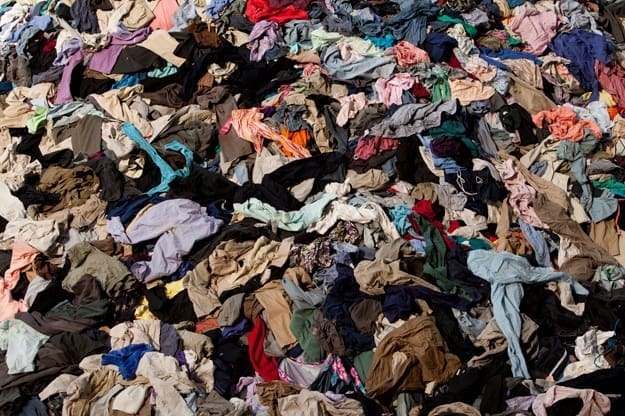The world is currently facing a dire plastic waste crisis that demands immediate attention. If we continue on our current trajectory of plastic usage and disposal, it is projected that by 2050, we will have an astounding 400 million metric tonnes of plastic waste. India alone contributes an average of 3.4 million metric tonnes of plastic waste annually, as highlighted in a 2023 report titled ‘Plastics: The Potential and Possibilities.’
The major issue with plastic waste is that most of it is non-biodegradable, breaking down into smaller fragments that pollute our oceans and pose a severe threat to various animal species. However, amidst this concerning scenario, there is a ray of hope emerging from the fashion industry. Brands are now going beyond using biodegradable bags and are revolutionizing fashion through the use of recycled plastic.
Recycled polyester is one sustainable fabric gaining significant attention. It is created using fibres made from post-consumer plastic bottles, offering a tremendous opportunity to reuse plastic waste and produce long-lasting, sustainable clothing. The incorporation of recycled polyester and other sustainable fabrics by the fashion sector has a positive impact on the industry’s carbon footprint in multiple ways.
Firstly, the production of recycled polyester consumes less energy compared to virgin polyester production, resulting in reduced greenhouse gas emissions. This energy conservation significantly contributes to the fight against climate change and helps lessen the industry’s carbon footprint. Additionally, sustainable fabric production aids in conserving water resources, decreasing the strain on precious freshwater sources.
Traditional textile production often involves harmful chemicals and processes that degrade soil quality over time. However, plastic has been found to perform better than alternatives like cotton in terms of water use and emissions.
For instance, producing a pound of cotton requires about 1,400 gallons of water, whereas recycled polyester requires virtually no water during production, and even virgin polyester production only utilizes small amounts of water as a coolant.
Furthermore, recycled plastic also plays a crucial role in reducing global carbon emissions derived from the fashion industry. According to a report by the Textile Exchange, each kilogram of recycled polyester represents a 70% reduction in greenhouse gas emissions compared to virgin polyester.
By embracing recycled polyester, the fashion industry actively contributes to waste reduction, protecting the environment, conserving natural resources, and preserving delicate ecosystems. Additionally, the industry continuously seeks innovative ways to convert plastic waste into wearable clothing through textile-to-textile recycling, showcasing its readiness to adapt and become more sustainable.
The incorporation of sustainable practices in a fashion not only has a significant impact on the environment but also influences branding and consumer perception. Today’s consumers are increasingly environmentally conscious and prefer companies that demonstrate a dedication to ethical business practices. By implementing sustainable fabrics, fashion brands can position themselves as ethical and progressive industry leaders, attracting customers who develop strong brand associations over time.
Considering the numbers, the fashion industry is a substantial contributor to global greenhouse gas emissions, accounting for approximately 4% of emissions, equivalent to the combined emissions of France, Germany, and the United Kingdom.
Additionally, the use of synthetic fertilizers and pesticides in cotton cultivation pollutes the soil and nearby water sources. However, the use of recycled polyester can significantly reduce the industry’s environmental impact and offer numerous advantages over traditional materials like cotton or wool. Polyester fabrics, which can be made from recycled polyester, are more affordable, durable, and require less water to launder and maintain.
To conclude, the use of recycled plastic in fashion represents a significant step towards addressing the plastic waste crisis and reducing the fashion industry’s environmental impact. It is imperative for the fashion industry to embrace and implement sustainable practices to tackle its substantial environmental challenges and ensure a more sustainable and responsible future for fashion. By adopting recycled polyester and other sustainable fabrics, the industry can revolutionize itself while protecting the planet.

